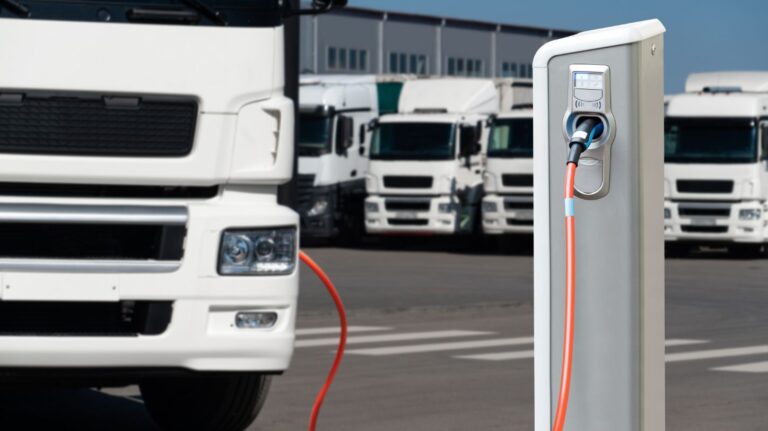New research from global consultancy Inverto has found that the number of electric commercial vehicles on UK roads increased by almost a third from 2023 to 2024.
The number of electric commercial vehicles in the UK in 2023 was 68,664. In 2024, this rose to 90,058, marking a 31% year-on year increase.
The majority of these electric vehicles were light commercial vehicles – 67,672 in 2023, rising to 88,787 in 2024. Total light commercial vehicles rose from 5.34 million in 2023 to 5.848 million in 2024 – a 3% increase.
Meanwhile, there were just 992 electric HGVs (eHGVs) in 2023, but this rose to 1,271 in 2024, marking a 28% increase. Total HGVs increased by 0.2%, from 741,010 to 742,316 during this period.
The overall percentage of commercial vehicles that are electric grew from just 1.1% in 2023, but not by much, with electric vehicles (EVs) making up 1.4% of total commercial vehicles.
Kiren Pandya, principal at Inverto comments: “The expansion of the commercial EV sector is expected to continue slowly. The main commercial EV expansion challenge facing logistics firms is the high cost of purchasing or leasing EV freight fleets. High interest rates make it more difficult for fleet operators to finance commercial EVs.
“Given the higher prices of EVs, the cost of financing has become a key barrier to adoption, despite the growing number of green policy initiatives, such as the pledge to reach net-zero emissions by 2035.
“There are practical challenges which are slowing the transition. For example, limitations to current battery technology means that there are very few options for switching HGVs to electric which is why the number of electric HGVs is just 0.02 % of all HGVs.”
“While many fleet companies are encouraged or even required to transition to commercial EVs as part of their contractual obligations with clients following strong sustainability policies, the broader uptake remains slow.”
As outlined by Heidi Alexander MP, secretary of state for transport, when presenting the outcome of a consultation on the UK’s zero-emission vehicle (ZEV) transition in April 2025: “From 2035, all new cars and vans will be zero emission.”
She said: “The shift to electric vehicles represents a huge opportunity for this country, not solely because of the carbon saving potential of these vehicles.
“Allowing vehicles to run on electricity reduces our reliance on imported fossil fuel. This helps to shield the UK from global geopolitical shocks, as the energy used to power our vehicles can be produced domestically.
“And it places our domestic industry at the forefront of the global transition to electric vehicles, ensuring our manufacturers are ideally placed to grow and enter new markets as other countries also pivot to electric.”
For more on eHGVs and the transition to a greener future for road transport logistics, check out this feature in the July issue of Logistics Manager!
Read how companies ranging from third-party logistics firms like Wincanton to cane sugar producer Tate & Lyle Sugars are ensuring their fleets are more sustainable and ready for the requirements of the future.







